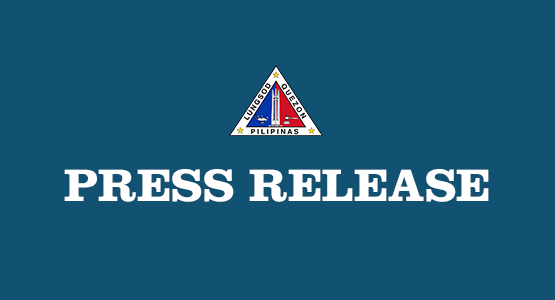
More COVID-19 cases have been identified by the Quezon City government due to its intensified testing and contact tracing efforts.
According to the recent report by the OCTA Research Group, the average number of new cases per day in the city is at 420 for the week of May 4 to 10. This resulted in a reproduction number of 1.02 and a positivity rate of 15%.
However, QC Mayor Joy Belmonte assures her residents that this is because of the city’s ramped up testing efforts which identifies more residents with COVID-19.
“Over the past weeks, our numbers are on a downward trend but the decrease has been slow. While we are treating and isolating confirmed cases in order to mitigate the spread, we also expanded our testing which determines not just symptomatic patients but also asymptomatic ones,” Mayor Belmonte said.
“This intensified effort led to the enlistment of more active cases in the city,” she added.
The city mayor explains that this is a more effective way of identifying and isolating the infectious and that the slow decline in numbers is in fact better than not identifying infectious residents at all.
Currently, the city’s Epidemiology and Disease Surveillance Unit (CESU) has established 22 community-based testing sites which operate from Mondays to Saturdays from 9am to 2pm. CESU also opened its online booking process for faster appointment scheduling of those symptomatic, with close contact, and other priority individuals such as those who will undergo medical procedures, dialysis patients and pregnant women.
The city also employs a combination of rapid Antigen tests and RT-PCR tests in identifying positive cases. Two mobile-testing trucks for community testing are also used in lockdown areas and other far-flung barangays.
On average, the city conducts around 3,026 tests per day. This sometimes reaches 4000 a day. New machines donated by the Temasek Foundation also increased to up to 1000 the number of samples that can be processed at the city owned molecular laboratory.
Apart from that, the city also maximizes its KyusiPass app to support its contact tracing activities.
Recent updates from CESU showed that KyusiPass system has identified 4,134 individuals who have been possibly exposed to now 23 positive cases in the city.
“Upon reviewing the activities of residents who tested positive last May 7 to 12, we learned that 23 of them were at certain establishments during the time they’re most likely infectious,” CESU Chief Dr. Rolando Cruz said.
This then complements the hard work of contact tracers employed by the city through its partnership with national government agencies – the Department of Interior and Local Government (DILG), Metro Manila Development Authority (MMDA), and the Department of Labor and Employment (DOLE) which will be around 2,600 upon completion of the hiring process.
###







